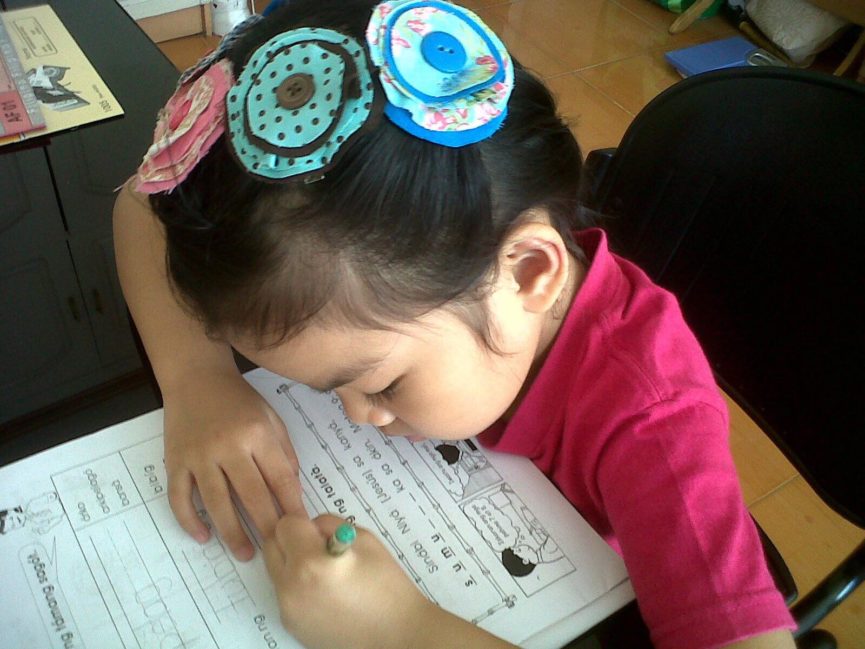So, you’ve thought things through and have seen the potential benefits homeschooling can have for your child and for your family. You have decided that you and your household can commit to it, and your child is looking forward to it. You’ve checked out the different formats for homeschooling and decided on which one to adopt.
Are you now ready for homeschooling? All set with determination? Then go!
But hold your horses! This ride is going to be as adventurous and fulfilling – if you have covered all areas of preparation. Here’s a quick checklist:
Let’s start with yourself!

Have you heard that in your effort to homeschool, you are the one most homeschooled?
- Learn and keep learning. You can only give what you are full of, so equip yourself. Attend teacher trainings. Though homeschooling has become popular, and support is more available, the government now has stricter requirements with regards to teacher’s qualifications.
- Seek guidance. Pray. Find mentors. Be active in a support group – online and “offline”. Stay in touch with your network.
- Set goals. You’ve read all the literature, attended conferences, decided on your method (independent, homeschool provider-affiliated, eclectic, unschooling, etc.), but have you zeroed in on your goals? Your goals are uniquely yours as parent / teacher/ supervisor/ financier/ director/ guidance counselor. Make measurable time goals: Are you trying this for half a year, a year or more?
- Clarify expectations and communicate goals. Make sure your spouse is on board. He or she, as well as other members of your team – tutor, coach, siblings, babysitter, househelp – need to be oriented. Coordinate calendars and roles with these partners, especially your spouse. If both of you have part-time jobs, it’s best to equally share the load. But if your spouse works full time, expect to do most of the teaching. You can divide the work per activity, day, or subject.
- Make a schedule. A routine doesn’t have to be strictly timed, but structure and predictability give the child a sense of security. Consider the existing daily routine of your spouse and other kids (homeschooled or not) when you make a schedule. If a child is enrolled in a group class (highly recommended) or the family has special events, you can lessen your study time or modify your plan for that day.
- Be open to adjustments. Constantly observe your child as a learner, and regularly evaluate the effectiveness of your timetable, schedule, and method. It takes time and patience to find the perfect match, not just for your child, but for your family, goals and lifestyle.
Your Child

Frequently talk to your child about the reasons you are homeschooling. Even preschoolers need to understand why you’re doing something different from your neighbors or relatives. Emphasize that homeschooling is a choice, and not a Plan B.
- If they have tried other schools, the transition is smoother when you focus on the benefits, without disregarding the cost – there’s lesser time with old classmates BUT more one-on-one time with mom; learning goes on even when it’s Signal no. 2 BUT schedule is flexible.
- Include your child in planning, calendaring, setting goals and choosing group classes. The older they get, the more involved they can become in being purposeful. This way, they have a sense of ownership of the homeschooling experience and won’t feel like it’s just Mommy’s project or Daddy’s ballgame.
- Orient them weeks in advance by starting on some books, trying out some worksheets, and taking them to support groups and cooperatives. Be open to changing some plans as a result of these “dry-runs”.
- Set playdates with fellow homeschooled children to meet their social needs. Show them that many other families have chosen the same path. If your child has friends whom she will miss because of her new schedule, arrange special times with them. Keeping old friendships and finding new ones will help your child enjoy the benefits of different social circles.
- Start slow for the first weeks as warm up. Build up the activities as you see her work faster and needing more challenges.
- Solicit ideas from your learner as to what kind of rewards he will enjoy whenever he achieves a goal. Treat him to simple joys whenever there’s a milestone, or an accomplishment, big or small.
- Express your commitment and excitement to journey with them. Let them know you look forward to more time together and fun in learning with them.
- Celebrate your first official day with a simple thanksgiving meal or snack. You can even dress up for it! Wear a shirt that will convey a message of excitement for this new beginning. Provide a journal, or start a blog, vlog or social media stories to document your journey.
Your Home

- Set up a room or a corner in your home with a table for desk work. The orderliness of books and materials in a shelf or cabinet, plus good ventilation and minimal noise make study conducive.
- Allot free spaces for lessons requiring movement.
- Computer and internet work must be done in a common area where a child’s activity can be easily monitored, no matter how old he is.
- Reserve a wall to display your child’s works, and your calendar.
- Don’t forget a progress chart, and a sticker board to encourage your learner about the progress she’s making.
- Assign a separate workspace like your kitchen counter, dining table or an outdoor work table for the messy part of schoolwork like painting, crafts and baking. A place with big windows, the garage, or backyard are often best for science experiments.
- Excite your child with some new items or supplies in her favorite color. Remember how much eager we were to start school as kids by the scent of new books and the sight of clean, brand new pencils, a pencil box and other organizers?
- Designate a backpack, envelope or portable box for storing the materials your child regularly uses. This will be quick to pick up and carry for on-the-road schoolwork, when your child has to tag along during your errands. After all, learning is not confined only in the home. Store a lapdesk or clipboard in your car to make the most of idle waiting in traffic, in parking spaces, and cafes.

Now here’s some advice from my 6-year-old Yakob, homeschooled since he was a baby: “For parents, wake up early. For children, don’t be too hard on your parents. Schoolwork and learning take time!” I totally agree. Parents have to be many steps and hours ahead. And kids have to be kinder to their parents. We still need sleep and a lot of grace.
Remember, homeschooling isn’t just all about your child. It is learning and working together. Team effort makes school work more manageable, meaningful and fun. Character is built and relationships are strengthened.
Welcome the “joyschooling” of your heart!

More into numbers than words, Richelle Joson-Ligot grew up writing merely in her head and in her heart, making up stories and characters, mixing up syllables to mean a new idea, and recording these all on diaries and in cassette. A voice talent, homeschooler, creative consultant, and choreographer, she is gifted in many ways, but considers the best gifts in her life to be the people the Giver has blessed her with – husband Tot, and children Mishka, Nikita, Miro and Yakob.
Related Posts
-
Parenting Fallacies
Fallacies are mistaken beliefs or false notions based on unsound arguments and therefore are deceptive…
-
Nature Invites Children to Wonder
Who would have thought that nature would become a mom’s best friend – from being…
-
Parenting the Digital Generation
Being connected through technology may make sense, but the human heart will always long for…




